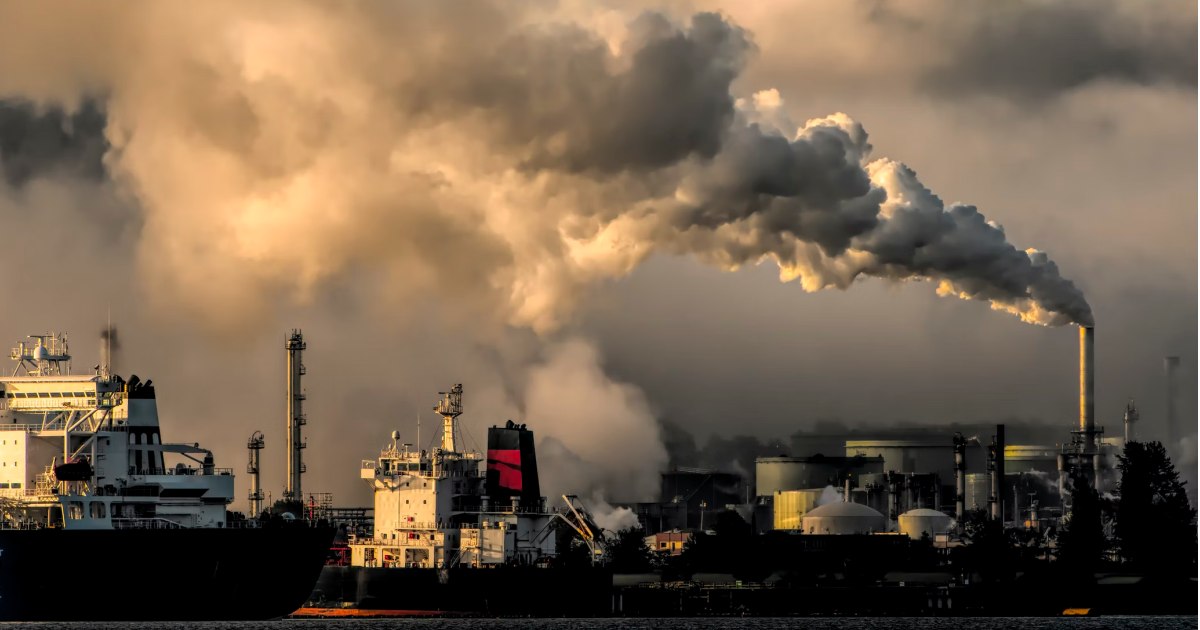
Without immediate and deep emissions reductions across the board, limiting global warming to 1.5°C will be beyond humanity’s reach says a new IPCC report.
The latest Intergovernmental Panel on Climate Change’s Working Group III (WG III) report released last night indicates it’s a “now or never” moment if global warming is to be limited to 1.5°C. This means achieving net zero carbon dioxide emissions globally in the early 2050s, and for a less ambitious 2°C, this will need to occur in the early 2070s.
2070’s? That seems a really long way off and plenty of time to faff about. But this still requires global greenhouse gas emissions to peak before 2025 at the latest, and be reduced by 43% by 2030. That makes the challenge rather more daunting and even achieving the 2°C target means plenty of climate change related woes in store.
But it’s not all bad news.
“We are at a crossroads. The decisions we make now can secure a liveable future,” said IPCC Chair Hoesung Lee. “We have the tools and know-how required to limit warming.”
These decisions involve substantial reduction in fossil fuel use, broad electrification, enhanced energy efficiency, and use of alternative fuels such as hydrogen. The report indicates wind and solar energy can provide the biggest potential reductions to greenhouse gas emissions through pushing out fossil fuels. It also notes solar PV is increasingly competitive with other forms of electricity generation and is the low-cost option in many applications.
“In many parts of the world, the cost of electricity from PV is below the cost of electricity generated from fossil fuels, and in some, it is below the operating costs of electricity generated from fossil fuels (high confidence).”
While progress has been made, the report states:
“Emissions reductions in CO2 from fossil fuels and industrial processes, due to improvements in energy intensity of GDP and carbon intensity of energy, have been less than emissions increases from rising global activity levels in industry, energy supply, transport, agriculture and buildings.”
The press release regarding the report notes financial flows are a factor of three to six times lower than levels needed by 2030 to limit warming to even below 2°C – but this can be addressed with clear signalling from governments and the international community.
Meanwhile, Back At The Australian Coal Ranch …
Australia has a bunch of experience in exporting climate change related misery to the world in the form of fossil fuels. It’s often said Australia’s contributions to greenhouse gas emissions are minuscule, but often forgotten is what we export.
The Resources and Energy Quarterly for March 2022 indicates while Australian thermal coal exports dropped from 213 million tonnes in 2019–20 to 192 million tonnes in 2020–21, this is expected to recover back to a 204–207 million tonne range over 2021-22.
Like a drug dealer in territory where competition is somewhat limited, we’re really cashing in at the moment. Surging prices are expected to push our thermal coal export values to a peak of $45 billion in 2021–22.
Another impact of Putin’s invasion of Ukraine is the expected delay of some coal power station closures and may lead to some closed plants being temporarily re-opened. Still, the bigger picture for coal power isn’t particularly rosy – and that’s good news. But whether it will happen fast enough to help prevent us falling over the climate edge remains to be seen, and is why pressure needs to be kept up – because who knows what’s going to happen next?

 RSS - Posts
RSS - Posts



A good post but the climate crisis get worse day by day. Thank you ?
If the IPCC is saying now or never I guess that means never. China remains the leading emitter, Russia is about #4. And India at #3 is more concerned about modernisation and security than pollution, let alone climate change. If those responsible for most of the pollution won’t act, what’s the point of anyone else doing so?
Assuming never, what then? What steps should Australia take to manage climate variation? More dams to store rainfall? Higher building standards for houses e.g. mandatory inclusion of high grade insulation, airtight designs, AC, and solar for self sufficiency? Perhaps a heavy emphasis on decentralisation\de-urbanisation so as to end the absurdity of two-thirds of Australians living in 1 of 5 concrete islands aka capital cities? Australia is a large land, why aren’t Australians living in it?
In the short term the concern for nations should not be climate change, but rather the impending catastrophes caused by Putin’s war against Ukraine. 50% of the world is reliant on fertiliser for their food, Russia is the leading exporter for fertiliser, and Ukraine is in the top 30. Russia is also the leading exporter of wheat, Ukraine about 5th – roughly on par with Australia. Thanks to war the Ukraine is unlikely to be exporting much. Russia, unhappy with Western and other nations imposing sanctions for an unjustified invasion, war crimes etc, is apparently imposing their own sanctions and preventing the export of agricultural products to ‘enemy powers’. The result of this means massive food shortages, something compounded by drought in US wheat states, and China’s winter harvest having had problems of its own. The UN is also warning of mass migration i.e. invasion from North Africa and\or the Middle East should Europe fail to act.
I get SQ’s focus is on solar issues, but in the short term (next year or so), folk are likely to have more important things to worry about than some theoretical end of the world i.e. an actual end of their world.
George Kaplan,
“Assuming never, what then?”
Inevitable civilisation collapse before the end of this century. Some people may survive, but billions likely won’t due to mass starvation.
“What steps should Australia take to manage climate variation?”
Go to higher ground (to mitigate for more than 1 m, and possibly up to 3 m sea level rise before 2100) and move further away from the equator (as northern regions become too hot/humid to live in by around 2070) until you perhaps run out of habitable land and adequate food growing areas in southern mainland Australia and Tasmania. Australians are five times more likely to be displaced by a climate-fuelled disaster than someone living in Europe.
See Table 1 at: https://www.ipcn.nsw.gov.au/resources/pac/media/files/pac/projects/2021/12/narrabri-underground-mine-stage-3-extension-project-ssd-10269/public-submissions/submissions-on-behalf-of-lock-the-gate-alliance/220225-penny-sackett_redacted.pdf
“Without immediate and deep emissions reductions across the board, limiting global warming to 1.5°C will be beyond humanity’s reach says a new IPCC report.”
The IPCC has always been reticent about reporting risks/probabilities and “erring on the side of least drama”. Accumulating scientific evidence/data is becoming increasingly more difficult for the IPCC to continue to downplay.
https://reneweconomy.com.au/take-unprecedented-action-or-bear-the-consequences-says-eminent-scientist-and-advisor-45081/
Climatologists Dr James Hansen, Dr Makiko Sato and Reto Ruedy wrote in their monthly newsletter titled Global Temperature in 2021, published 13 Jan 2022, began with (bold text my emphasis):
http://www.columbia.edu/~jeh1/mailings/2022/Temperature2021.13January2022.pdf
In the YouTube video titled SR Australia – Social and Earth System Tipping Points | Prof. Will Steffen + Dr. Nick Abel, published Apr 3, executive director of the Australian National University (ANU) Climate Change Institute, Professor Will Steffen said from time interval 0:19:49:
“It is virtually certain that we will breach 1.5°C before mid-century.”
At time interval 0:21:57, Will Steffen questions:
“Are we already losing control of the system?”
Looks like i need to start looking at moving to higher ground.
Maybe Armidale? Thats nice and high and has quite low temperatures.
But then i am living the Barnaby’s area.
At least he secured them the best NBN